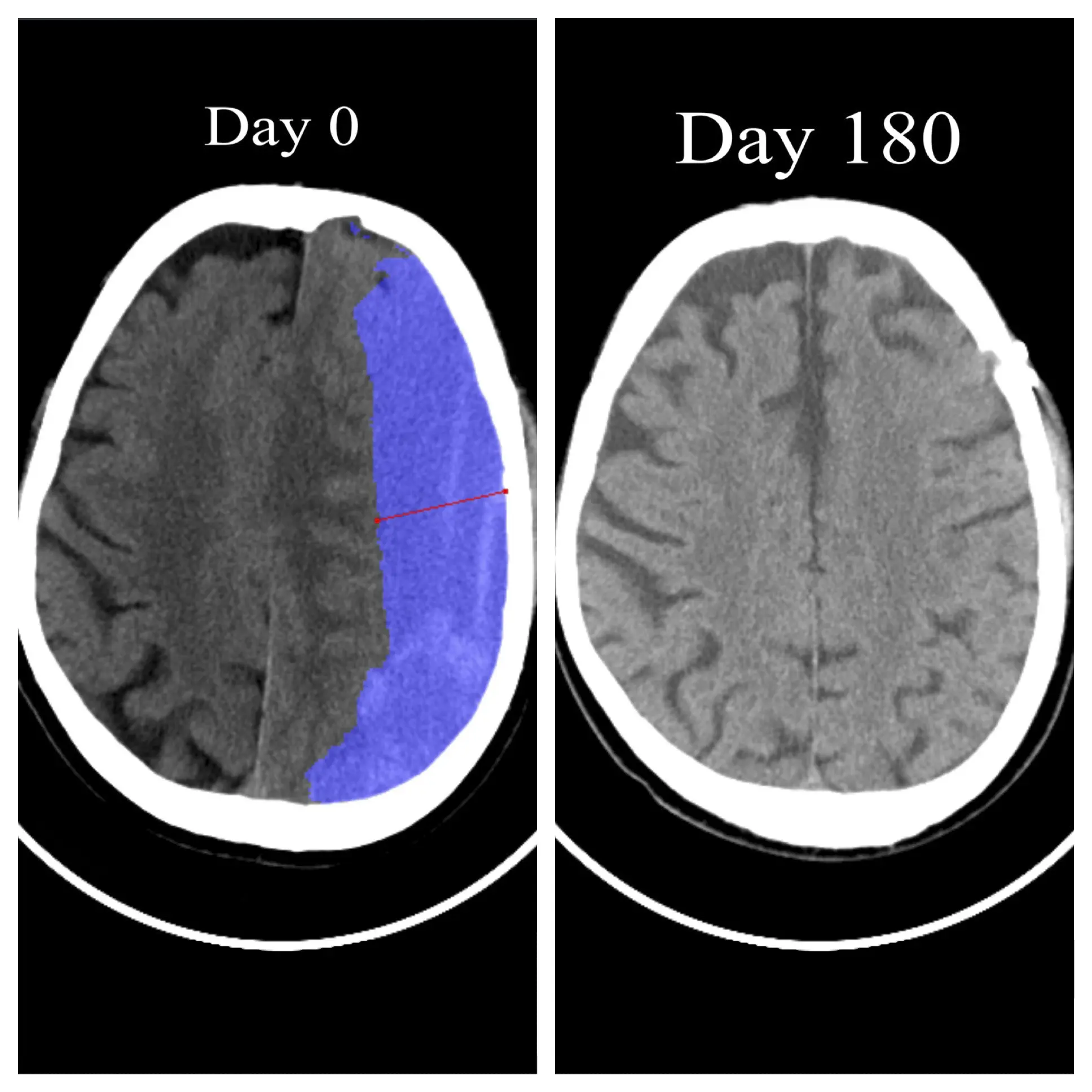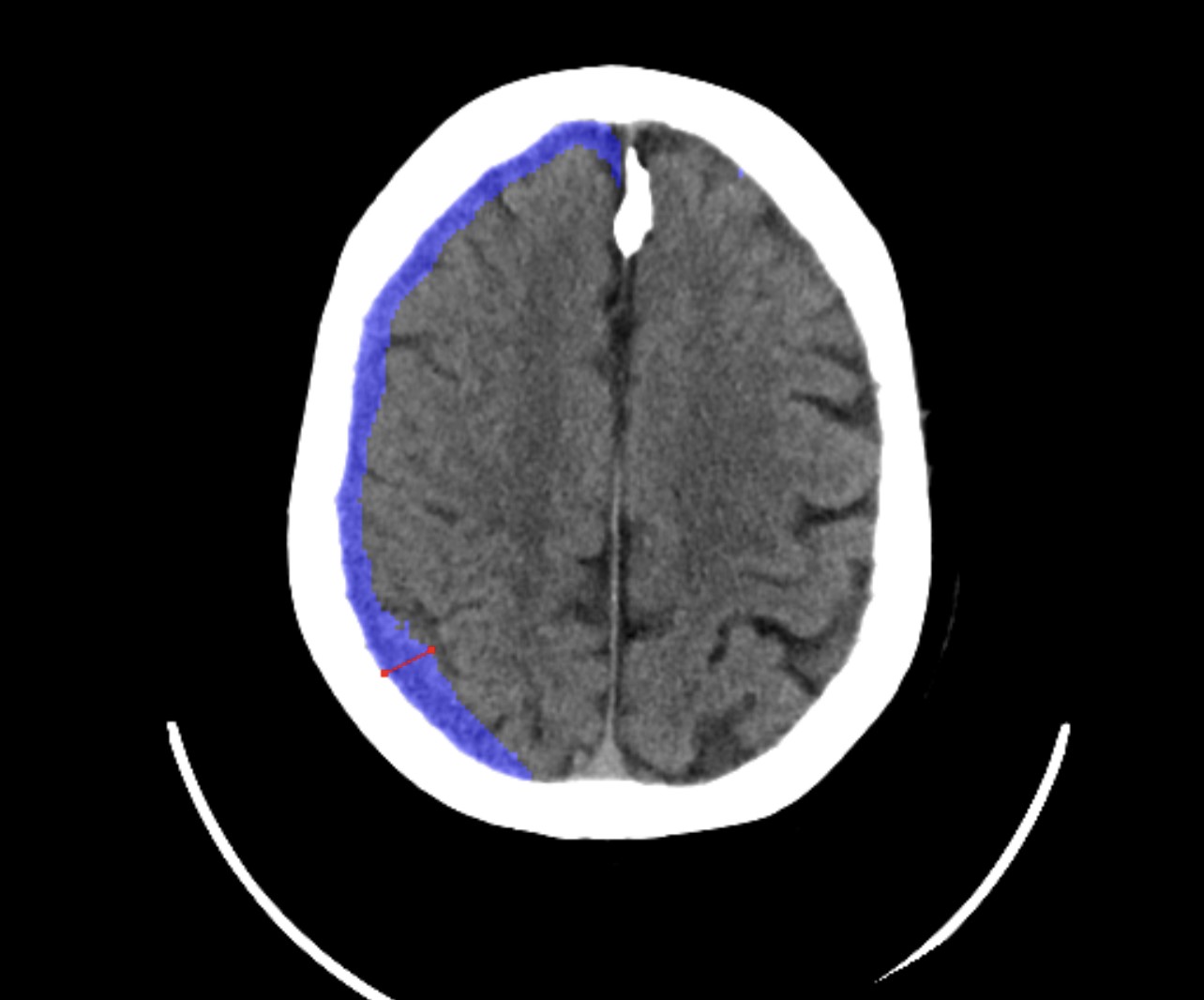What is a Subdural Hematoma?
The brain is located in a closed space surrounded by the skull. Underneath the skull is a type of covering of the brain, called the dura that surrounds the brain. This layer keeps the ridges of the skull smooth so the brain is better protected. Sustaining head injuries can cause many different types of bleeding inside the brain depending on the type of injury, and whether it is a traumatic brain injury or minor head injury.
A subdural hematoma is one specific kind of bleeding. In an acute subdural hematoma, bleeding occurs between the dura and the surface of the brain, but not actually in the brain.
As bleeding continues it may start causing pressure on the brain by pushing at the brain tissue, and that can cause symptoms, as well as long term brain damage.
A rapidly growing hematoma in the subdural space is a collection of acute and fresh blood and it will typically require surgical treatment. A CT scan can diagnose the subdural hematoma. That scan usually gets done in the emergency room, and a neurosurgeon will perform a small hole in the skull to drain the blood out.
Sometimes a larger opening, called a craniotomy for subdural, is necessary to be performed under general anesthesia to remove the blood when a subdural hematoma occurs. If a person has a bleeding problem or is taking blood thinners, measures will be taken to improve blood clotting. This may include giving medicines or blood products, and reversal of any blood thinners, when possible. Other medications to help reduce swelling or intracranial pressure in the brain or control seizures may also be used.
Slow-growing hematomas are more common in older people, particularly elderly men and individuals with a history of alcohol abuse are at higher risk for a slower kind of bleeding, called a chronic subdural hematoma.
In older adults it is common that the brain shrinks a bit, which creates more space between the dura and the brain. As a result, a collection of blood can occur slowly over the surface of the brain.
What are the symptoms of a Subdural Hematoma?
The symptoms experienced will depend on the rate of bleeding. Fast growing hematomas caused by tearing of tiny blood vessels on the surface, can become a life threatening emergency.
Younger adults can pass out immediately, or even become comatose, requiring emergency treatment.
Slow-growing hematomas can go on for days or weeks before they may cause any symptoms. Symptoms of a subdural hematoma may include unusual headaches, confusion, dizziness, or trouble speaking along with trouble walking or falls.
Some people may not experience any symptoms at all, but may have seizures. How you respond to the subdural hematoma depends not only on the size of the hematoma but also on your state of health and age. Individuals with slow growing hematomas may not even recall any head trauma
It may come as a surprise to some that performing daily activities with such chronic bleeding did not cause more symptoms.
We focus on outcomes not treatments.
Let's find the most appropriate solution to your Cerebrovascular condition.Diagnosis of a Subdural Hematoma
A CT scan (computed tomography ct) or MRI (magnetic resonance imaging mri) scan can inform the doctor if the bleeding is an acute or chronic type, or sometimes a mixture of both.
Different stages of blood can be identified on those images.

Subdural Hematoma Treatment
The treatment of chronic subdural hematoma depends on their severity.
Treatment for subdural hematomas include a range of options that go from watchful waiting to requiring brain surgery with one or two burr holes.
Burr holes are quarter sized small holes above your ear done in an operating room by a neurosurgeon. The small hole allows for the blood to get drained out and relieve the high pressure it has caused on the brain.
The brain will then slowly expand back to its original position. It does not “spring” back in place particularly if the bleeding has been going on for a while.
A small cavity can remain and occasional that can lead to a collection of air, or bloody-type of fluid which fills in that space.
Will a Subdural Hematoma Return?
In fact, chronic subdural hematomas are notorious for recurrence. To decrease the chance of that recurrence, your neurosurgeon may offer an angiogram.
During an angiogram (angiography), a catheter is inserted through an artery in the groin or wrist, and threaded into the arteries of the neck and brain. Special dye is then injected, and an X-ray screen shows blood flow through the arteries and veins.
This procedure allows direct access to the main blood supply of the dura, the middle meningeal artery (MMA), and is capable of occluding those blood vessels, thereby allowing the collection to be resorbed without recurrence.
While this treatment method has been known for more than 20 years, it still remains an ongoing area of research.
Treatment can vary, and you can get more advice on this condition from one of our specialists.

About Dr. Dorothea Altschul
Dr. Dorothea Altschul is an accomplished neurointerventionalist in North Jersey and is the Clinical Director of Endovascular Services at Neurosurgeons of New Jersey, practicing out of their Ridgewood office located on East Ridgewood Avenue.







